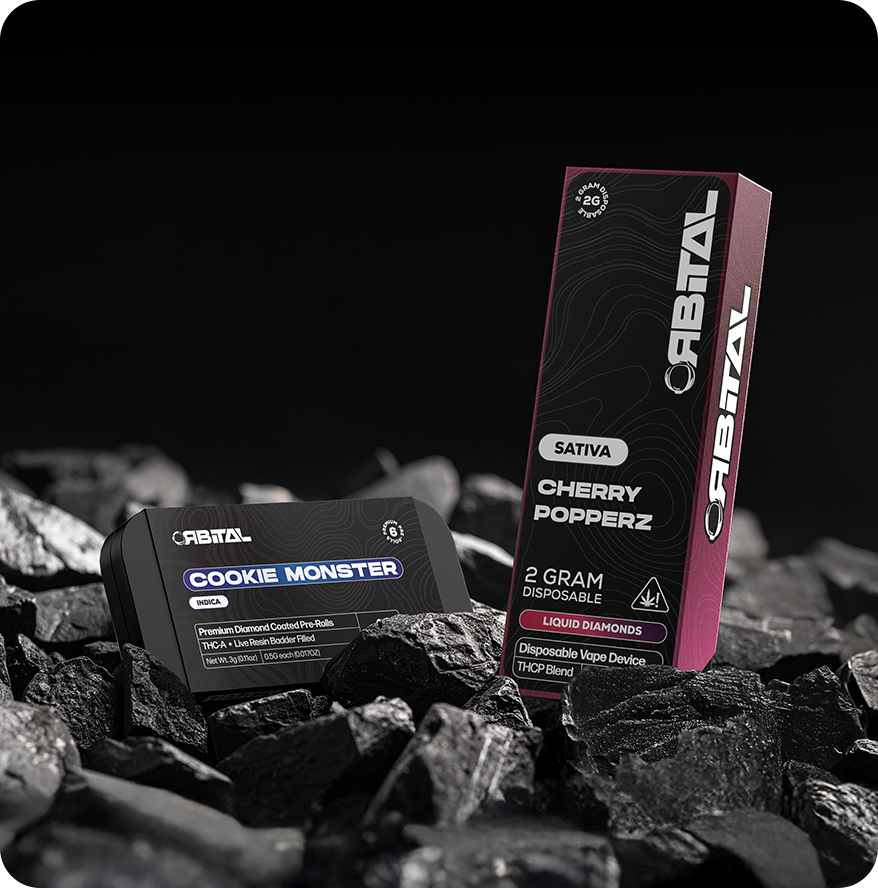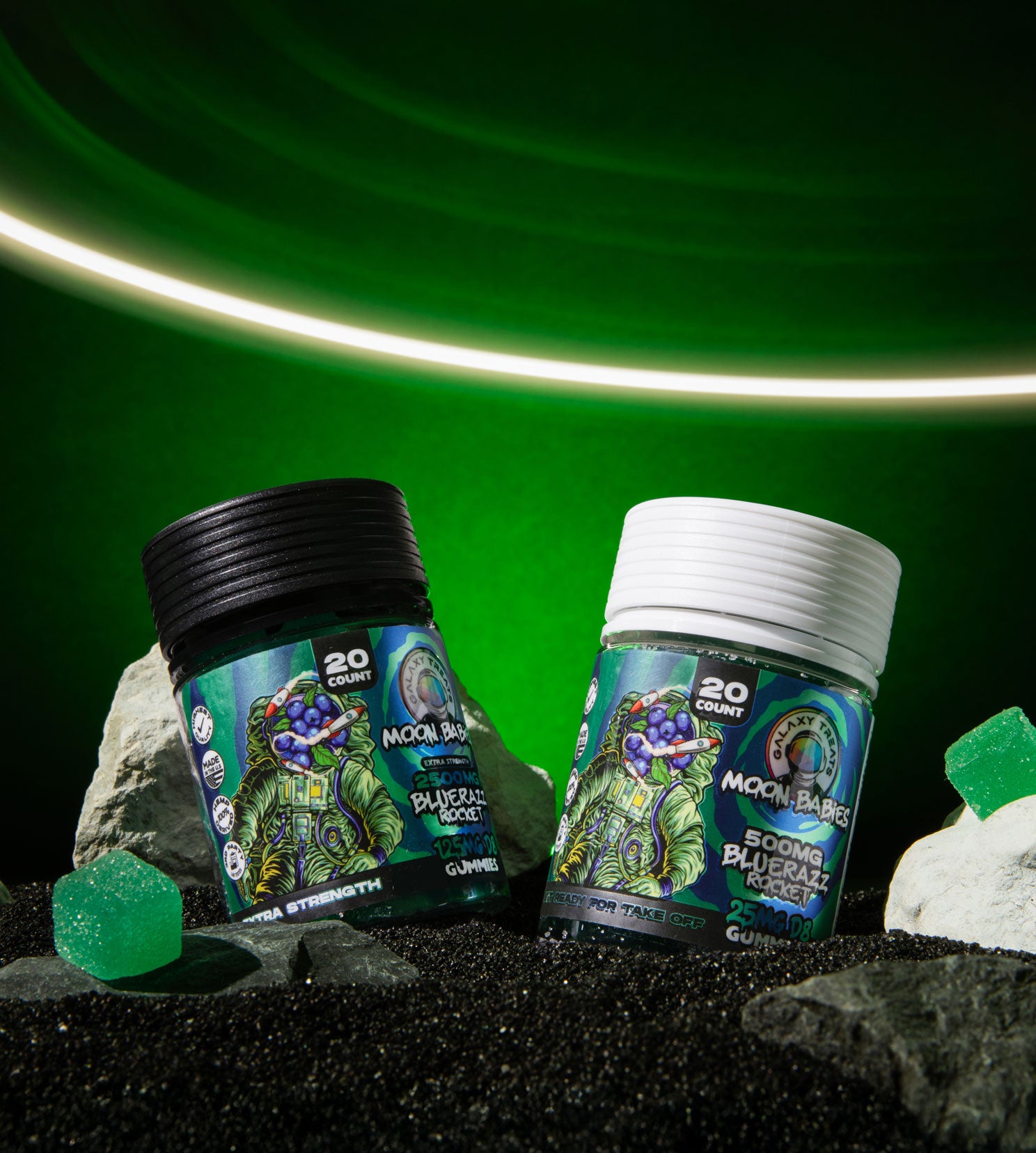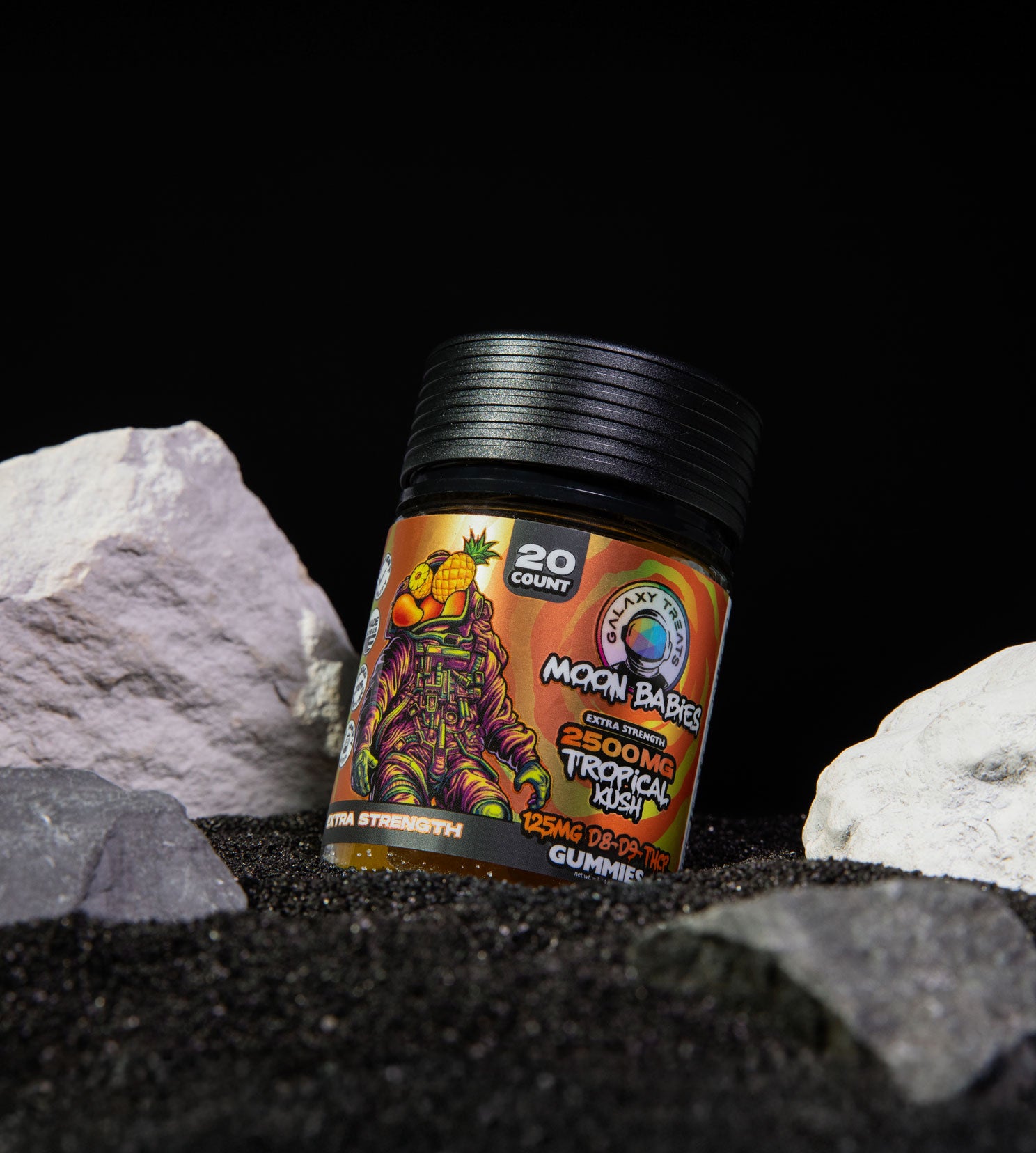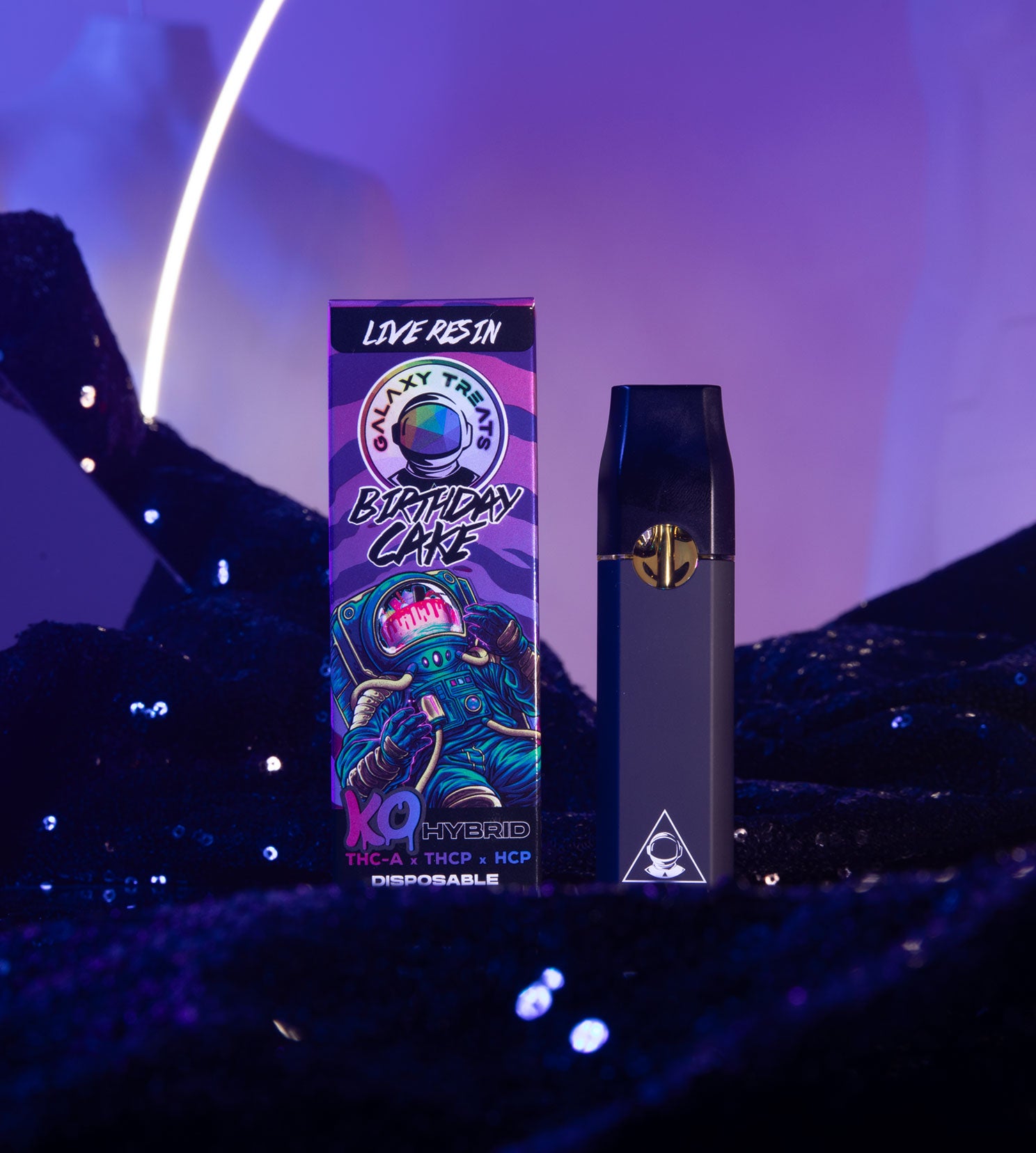Hexahydrocannabinol or HHC and Delta 8 THC are both notable cannabinoids, each offering unique effects. HHC, a hydrogenated form of THC, is gaining attention for its distinctive properties. On the other hand, Delta 8 THC, a minor cannabinoid found in hemp and cannabis, is known for its milder psychoactive effects compared to Delta 9 THC. But, is HHC stronger than Delta 8? What about HHC vs. Delta 8 for sleep? It is crucial to explore both topics to understand their impacts.
Hexahydrocannabinol or HHC and Delta 8 THC are both notable cannabinoids, each offering unique effects. HHC, a hydrogenated form of THC, is gaining attention for its distinctive properties. On the other hand, Delta 8 THC, a minor cannabinoid found in hemp and cannabis, is known for its milder psychoactive effects compared to Delta 9 THC. But, is HHC stronger than Delta 8? What about HHC vs. Delta 8 for sleep? It is crucial to explore both topics to understand their impacts.
Each compound has different effects on the body and mind, and knowing these differences can influence the user's experience significantly. This comparison is about potency and encompasses aspects like safety, legal status, and potential health benefits. Now, let's compare HHC and Delta 8 to see how they are similar and how they are different.
Comparing HHC and Delta 8 THC
Both HHC and Delta 8 THC offer unique experiences, but their effects can vary depending on several factors. While HHC is known for its strong and potentially more euphoric effects, Delta 8 THC is often described as more relaxing and less intense.
It's essential to consider factors like individual tolerance and the quality of the product when comparing these cannabinoids. This comparison is not just about potency but also about the overall experience and potential therapeutic benefits.
What is HHC?
Hexahydrocannabinol (HHC) is a hydrogenated form of THC created through a process that adds hydrogen molecules to THC. This modification alters its molecular structure, potentially impacting its potency and effects. HHC is relatively new in the cannabinoid market, and its exact effects and properties are still being researched. It's believed that HHC interacts with the body's endocannabinoid system similarly to THC but with subtle differences.
 HHC interacts with the endocannabinoid system (ECS), primarily binding to the CB1 and CB2 receptors. This interaction influences various physiological processes, potentially offering therapeutic benefits. Due to its altered structure, HHC may have a different affinity for these receptors compared to other cannabinoids, leading to unique effects. Understanding how HHC interacts with the ECS is crucial for comprehending its potential uses and benefits.
Existing research on HHC is limited but growing. Studies so far suggest that HHC may have properties similar to THC, with the potential for pain relief, mood changes, and other therapeutic effects.
HHC interacts with the endocannabinoid system (ECS), primarily binding to the CB1 and CB2 receptors. This interaction influences various physiological processes, potentially offering therapeutic benefits. Due to its altered structure, HHC may have a different affinity for these receptors compared to other cannabinoids, leading to unique effects. Understanding how HHC interacts with the ECS is crucial for comprehending its potential uses and benefits.
Existing research on HHC is limited but growing. Studies so far suggest that HHC may have properties similar to THC, with the potential for pain relief, mood changes, and other therapeutic effects.
Delta 8 THC: A Close Relative
Delta 8 THC is a minor cannabinoid derived from hemp and cannabis. It is similar to Delta 9 THC, the primary psychoactive component in cannabis, but with a slightly altered chemical structure. This alteration leads to a less potent psychoactive effect compared to Delta 9 THC. Delta 8 THC has gained popularity for its milder effects and is often chosen by those seeking less intense experiences.
Delta 8 THC interacts with the ECS similarly to other THC variants. It binds to the CB1 and CB2 receptors, influencing various bodily functions. This interaction can lead to feelings of relaxation, euphoria, and potential relief from symptoms like nausea or pain. The effect of Delta 8 THC on the ECS contributes to its growing popularity among users seeking mild psychoactive effects with fewer side effects.
The popularity of Delta 8 THC has surged due to its legal status in many regions and its perceived therapeutic benefits. Users often report a smoother, more manageable high compared to Delta 9 THC, making it a preferred choice for recreational and medicinal use. Its potential benefits include stress reduction, pain relief, and improved sleep, contributing to its widespread use and acceptance.
Is HHC Stronger Than Delta 8 THC?
So, is HHC stronger than Delta 8? To answer this, various factors like dosage, individual tolerance, and product quality play a significant role. HHC is often perceived as stronger due to its potentially more intense psychoactive effects. However, the strength of these cannabinoids can vary based on how they are consumed and the user's unique physiology.
- Dosage: The effects of HHC and Delta 8 THC are heavily dependent on dosage. Lower doses of HHC might be comparable to Delta 8 THC, but higher doses can lead to more pronounced effects.
- Individual Tolerance: Users with higher tolerance may find the effects of HHC more manageable, while those new to cannabinoids might prefer the milder nature of Delta 8 THC.
- Product Quality: The purity and quality of the cannabinoid products significantly affect their potency. High-quality products tend to provide more consistent and predictable effects.
- Method of Consumption: Inhalation, edibles, and tinctures all deliver different experiences. The method of consumption can influence the onset, duration, and intensity of effects for both HHC and Delta 8 THC.
- Personal Physiology: Individual differences in metabolism, body chemistry, and ECS sensitivity can lead to varied experiences with HHC and Delta 8 THC.
 User experiences and anecdotal reports suggest a range of responses to HHC and Delta 8 THC. Some users find HHC to be stronger and more euphoric, while others prefer the milder, more relaxing effects of Delta 8 THC. These reports highlight the subjective nature of cannabinoid experiences.
The strength and effects of HHC and Delta 8 THC can vary significantly from person to person and by-product. Factors like individual biochemistry, product formulation, and consumption methods all contribute to these variations. This underscores the importance of starting with lower doses and gradually increasing them as needed.
User experiences and anecdotal reports suggest a range of responses to HHC and Delta 8 THC. Some users find HHC to be stronger and more euphoric, while others prefer the milder, more relaxing effects of Delta 8 THC. These reports highlight the subjective nature of cannabinoid experiences.
The strength and effects of HHC and Delta 8 THC can vary significantly from person to person and by-product. Factors like individual biochemistry, product formulation, and consumption methods all contribute to these variations. This underscores the importance of starting with lower doses and gradually increasing them as needed.
HHC vs. Delta 8 for Sleep
What about HHC vs. Delta 8 for sleep? This revolves around their potential sleep-enhancing effects. Both cannabinoids have properties that might aid in relaxation and improve sleep quality. However, their effectiveness as sleep aids can vary depending on the individual and the specific product used.
Individual experiences with HHC and Delta 8 THC as sleep aids are diverse. Some users report better sleep quality and an easier time falling asleep with Delta 8 THC due to its relaxing effects. In contrast, others find the more potent effects of HHC helpful for sleep, especially in higher doses.
It's important to note that factors like dosage, individual tolerance, and the presence of other cannabinoids or terpenes in the product can influence the effects of cannabinoids on sleep. What works for one person may not be effective for another, highlighting the personalized nature of cannabinoid use.
Safety and Legality
When considering the use of HHC or Delta 8 THC, it's crucial to understand personal tolerance and the legality of these substances in your region. Laws regarding cannabinoids can vary widely, and staying informed is essential for safe and legal use. Users should also be aware of their physiological responses to these compounds to avoid adverse effects.
While we do our best to maintain this article with the most relevant regulatory information, we may not always have the chance to do so, so this information may not always be 100% up to date. Furthermore, some states and vicinities may have enacted specific laws and regulations regarding HHC and Delta 8 that we may not be aware of. For that reason, you are strongly advised to consult with your attorney or research the specific laws and regulations in your state and/or local vicinity to fully understand the legality of HHC and Delta 8 in your area.
Explore HHC Gummies From Galaxy Treats Today!
We have tried to provide a complete overview of the similarities and differences between HHC and Delta 8 THC, delving into aspects like potency, user experiences, and sleep effects. Understanding these differences can help users make informed decisions about which cannabinoid might be best for their needs.
 Galaxy Treats offers a range of HHC gummies and other products, like Pluto Punch, Rainbow Rocket, and Galaxy Grapple! Take a closer look at our selection today, and give our gummy products a try!
Galaxy Treats offers a range of HHC gummies and other products, like Pluto Punch, Rainbow Rocket, and Galaxy Grapple! Take a closer look at our selection today, and give our gummy products a try!
 HHC interacts with the endocannabinoid system (ECS), primarily binding to the CB1 and CB2 receptors. This interaction influences various physiological processes, potentially offering therapeutic benefits. Due to its altered structure, HHC may have a different affinity for these receptors compared to other cannabinoids, leading to unique effects. Understanding how HHC interacts with the ECS is crucial for comprehending its potential uses and benefits.
Existing research on HHC is limited but growing. Studies so far suggest that HHC may have properties similar to THC, with the potential for pain relief, mood changes, and other therapeutic effects.
HHC interacts with the endocannabinoid system (ECS), primarily binding to the CB1 and CB2 receptors. This interaction influences various physiological processes, potentially offering therapeutic benefits. Due to its altered structure, HHC may have a different affinity for these receptors compared to other cannabinoids, leading to unique effects. Understanding how HHC interacts with the ECS is crucial for comprehending its potential uses and benefits.
Existing research on HHC is limited but growing. Studies so far suggest that HHC may have properties similar to THC, with the potential for pain relief, mood changes, and other therapeutic effects.
 User experiences and anecdotal reports suggest a range of responses to HHC and Delta 8 THC. Some users find HHC to be stronger and more euphoric, while others prefer the milder, more relaxing effects of Delta 8 THC. These reports highlight the subjective nature of cannabinoid experiences.
The strength and effects of HHC and Delta 8 THC can vary significantly from person to person and by-product. Factors like individual biochemistry, product formulation, and consumption methods all contribute to these variations. This underscores the importance of starting with lower doses and gradually increasing them as needed.
User experiences and anecdotal reports suggest a range of responses to HHC and Delta 8 THC. Some users find HHC to be stronger and more euphoric, while others prefer the milder, more relaxing effects of Delta 8 THC. These reports highlight the subjective nature of cannabinoid experiences.
The strength and effects of HHC and Delta 8 THC can vary significantly from person to person and by-product. Factors like individual biochemistry, product formulation, and consumption methods all contribute to these variations. This underscores the importance of starting with lower doses and gradually increasing them as needed.
 Galaxy Treats offers a range of HHC gummies and other products, like Pluto Punch, Rainbow Rocket, and Galaxy Grapple! Take a closer look at our selection today, and give our gummy products a try!
Galaxy Treats offers a range of HHC gummies and other products, like Pluto Punch, Rainbow Rocket, and Galaxy Grapple! Take a closer look at our selection today, and give our gummy products a try!







